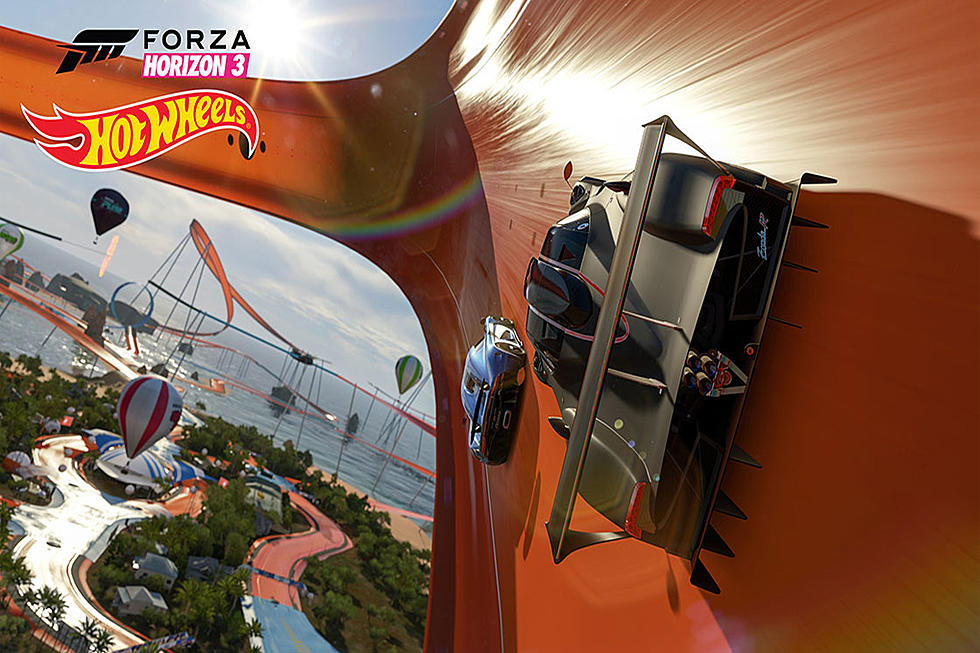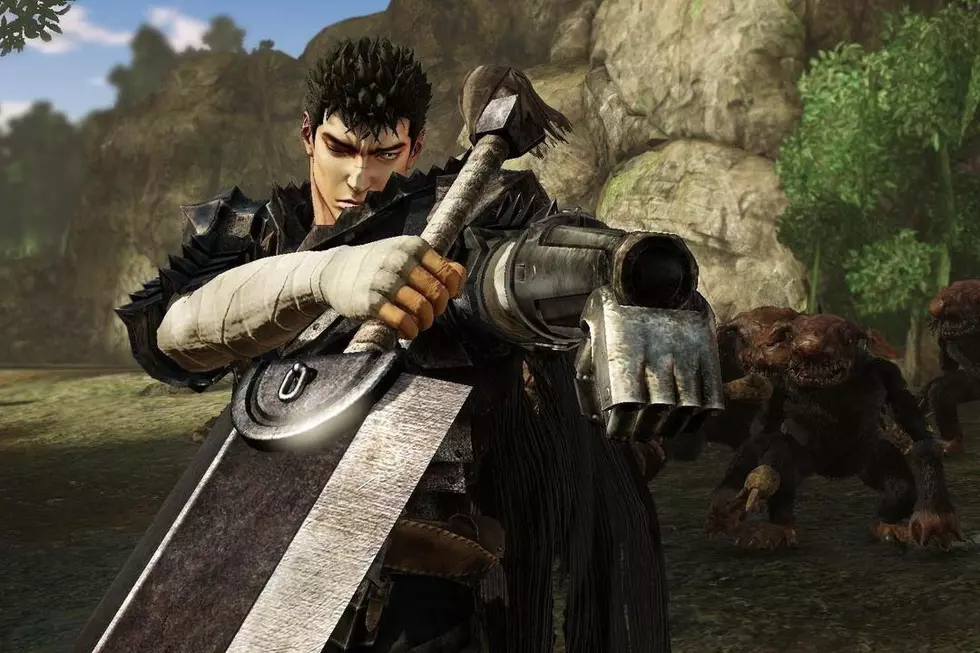
Mass Effect Andromeda Review (Xbox One)
There's a lot going on in Mass Effect Andromeda, and a large portion of it is very good. For every great bit of dialogue, story and combat however is a matching bit of excess that makes settling civilization more of a chore than it should be in a video game. Or a mess of technical issues that causes Andromeda to drag or pull you out of the moment. Bioware brought a lot more planets, combat, exploration and mechanics to the table this time around, but more isn't always better. There may be no stronger case for keeping things simple than Mass Effect Andromeda.
Mass Effect Andromeda begins around the same time as the first Mass Effect. While the original trilogy focused on the Milky Way adventures of Commander Shepard, Mass Effect Andromeda focuses on the Andromeda Initiative, a deep space pioneering effort combining the efforts of all the Milky Way inhabitants. For 600 years, the Initiative traveled to the Andromeda galaxy in separate arks, each spearheaded by a different race's Pathfinder. Some half-dozen planets await the Initiative, each of which was designated a golden world for its ability to sustain life and colonization so far away from our origins.
A lot can happen in six centuries however, and while the tens of thousands of potential colonists were in deep sleep, Andromeda was infected by the Scourge. This massive space anomaly has caused all sorts of havoc in Andromeda, including damaging a number of the Initiative's arks in transit. Earth's ark is the only one believed to have made it all the way to Andromeda's Heleus Cluster, where the Initiative's temporary government waits aboard the Nexus space station. That's not the end to the bad news however, as all those "golden" planets might not be the salvation the Initiative hoped they were 600 years ago.
As one of the Ryder twins, it'll be up to you to pick up your father's mantle as the human Pathfinder and find out what happened to Andromeda while you were in cryogenic stasis. The fates of the other arks --- one each for the Turians, Salarians and Asari --- also remain a mystery for you to solve, as does negotiating first contact with any new races in the Andromeda galaxy. It's a lot to take in as the sweeping scale of Mass Effect Andromeda can feel just as overwhelming at the start as it does dozens of hours into the experience.
The core story, as well as the narratives surrounding each of the crew members Ryder adds to her team along the way, is deep and engaging, and the personal relationships are again a strong point for Bioware's flagship franchise. When working within the confines and characters of the Tempest --- Ryder's ship for exploring Andromeda --- it's clear Bioware hasn't skipped a beat. Ryder won't be limited to conversational tones that can be attributed to just two different moral ends of the spectrum either. In Andromeda, the dialogue wheel offers a number of different options that result in more natural dialogue and the evolution of your character.
Where Mass Effect Andromeda's largess starts to get it in trouble is across the numerous planets you're able to visit and explore. The world-building is impressive, and there's no doubt Bioware spent a great deal of time creating a galaxy that felt different from the Milky Way of previous Mass Effects, but also that felt authentic and lived-in no matter how strange and different it seemed. The feeling of a real population comes from the hundreds of NPCs across the galaxy that need Ryder's help with the most mundane of tasks. The problem with having to fill all these planets is finding worthwhile things for Ryder to do that feel on her level as Lead Pioneer of the Milky Way.
At first, doing side-quests like finding someone medicine or investigating potential station sabotage don't feel too draining or grindy, but by the time you make it to your third or fourth planet, it becomes exhausting. Everyday life is tedious, and there's a reason why most video games focus on more fantastical elements many of us won't ever get to experience in reality. You know, like space travel and exploration. Andromeda begins to bend and break under the weight of having such expansive open area maps (it's not fully open world), and falls into the classic trap of giving players too many pointless tasks.
One of the great strengths of the previous Mass Effect games was not over-extending playable areas to the point of exhaustion. Though Andromeda's planets do like actual living ecosystems, it comes at the expense of player sanity. You can only mine so many resources and fetch so many items before you crave something more. And heaven forbid you have to go back to the Tempest to read a message to progress a quest. That requires a cinematic where you must leave the planet, check the video or email on the ship, then go back to the planet for the next objective. It's arguably the worst design decision in the game.
Andromeda also introduces a scanning mechanic to study the new alien technology and lifeforms, which gives you research currency. You'll be scanning a lot of things a lot of the time, and it's not always fun. Nor is it all that necessary. The research and development aspect, along with crafting, is another of Andromeda's elements that does give players more things to do and collect, but never really serves any purpose but to exist. Particularly because you can buy just about all the items you'd craft anyway, and the loot containers spread across the game are very generous with the items you'll get. The obsession with including crafting in everything now no matter how ill-fitting it is just makes you scratch your head. There's nothing exciting or necessary about it at all.
What is exciting about exploring Andromeda's planets are the Remnant vaults. The Remnant are a mysterious technological race that have "infected" all the worlds of Andromeda with monoliths and vaults that appear to control a planet's viability. Each vault on golden worlds is completely different, but provides Mass Effect with some of the only real gameplay variation from previous entries in the series. The vaults present some slight platforming puzzles to solve, though they are filled with enemies as well. Aside from furthering the story, seeing what kind of tricks the Remnant have waiting for you on a new planet is often the driving force behind getting to a new world faster. The vaults never grow tiresome because they are so few and far between, and they feel much more tightly designed than the gigantic planets you find them on.
Combat has been improved greatly thanks to the inclusion of a new jet pack. The gunplay remains adequate for a third-person shooter, but Bioware's decision to continue using automatic cover is a hindrance. At times, Ryder will snap in and out of cover seemingly without any real sense of why she's in cover to start with, and that leaves you exposed in battle. Being able to boost around to evade, or to hover above enemies to take advantage of their own reliance on cover, makes things much more interesting and tolerable however.
It's not all great when it comes to Ryder's Skills though. Bioware eschewed forcing players down a specific tree of abilities this time, but also included new Profiles that allow you tailor your Ryder even more to your own playstyle. Skills and Profiles can be favorited --- as well as saved and swapped at any point --- but you have to use one of the most cumbersome user interfaces to do it. You're still only allowed three Skills at a given time, but you can switch Profiles to get a new Skill set in... by pausing the game, going to a menu, making sure you select and load the Profile and don't accidentally overwrite it, and then jumping back to combat. It's not smooth, and considering how many systems Andromeda already has in play, adding one that complicates things further unnecessarily seems cruel to new and returning players.
Making things slightly more cumbersome is how helpless your teammates feel out in the field. They don't die quite as often as they did in earlier games in the franchise, but they certainly don't seem to be pulling their weight as much against enemies either. Even though you can direct them to specific cover areas or targets, the Tempest team hardly listens to Ryder's battle directives. It's quite frustrating when trying to strategize and improvise in the moment, and you should be prepared to do most of the heavy lifting despite having "help."
Of course the technical issues plaguing Mass Effect Andromeda have become a common thread in the week up to its release. Animations for the human characters aren't even good most of the time, but all of the alien races are expressive and feel more alive than they ever have before. Those elements are just a small part of Andromeda's technical problems. Frame rate drops are egregious, particularly in firefights on planets with a lot of environmental elements. A personal favorite though is when a character will not only be absent from a cutscene, but so will the dialogue that was supposed to accompany them. There's nothing that can ruin a moment in Mass Effect quite like only hearing 40% of a conversation crucial to the plot.
Thankfully, multiplayer is its own beast this time around. Players won't have to complete multiplayer missions to get the best possible ending in the game, though there are some light crossover elements. You can either play APEX missions with your friends or send Strike Teams from the Tempest. Strike Teams will then attempt a given mission, with the rewards being more crafting materials. APEX missions have greater rewards, and the advantage of giving you more currency and potential card packs for the actual multiplayer portion.
Andromeda's multiplayer is a horde-style affair that brings some "king of the hill" and "VIP/Assassination" elements into play from time to time. The difficulty balancing never felt unfair, though Andromeda's multiplayer only scales for four players no matter how many people are actually attempting a given mission. You will be overwhelmed easily if you don't go in with a full squad, especially if you take on any that are above a Bronze difficulty.
The currency you earn can be used to buy more card packs, which include items and more character classes. There are no personal characters in multiplayer, but rather a collection of different Profiles and Skills assigned to about two dozen common, uncommon and rare characters. You can level each of these up as you play, giving their Skills more power and punch, but developing a balanced character roster will only help you in the long run.
Mass Effect Andromeda truly shines in the smaller moments when the weight of having to colonize an entire galaxy isn't on your shoulders. The Andromeda galaxy feels full of life however, and it's a place we're eager to return to in the future. Exploration is a great deal of fun right up until the denizens of the newly discovered planets drag you into their own problems, which aren't all that impressive in the grand scheme. Nobody said being a Pathfinder would be easy, but it probably would have been a bit more tolerable if it wasn't so mired in managing tedium.
This review was completed using a digital copy of Mass Effect Andromeda provided by the publisher for Xbox One.
More From Arcade Sushi


![Destiny 2 Strike Hands-On: Digging Into The Inverted Spire [Preview]](http://townsquare.media/site/550/files/2017/05/destiny-2-strike.jpg?w=980&q=75)
![Destiny 2 Campaign Hands-On: The Cabal Crash Homecoming [Preview]](http://townsquare.media/site/550/files/2017/05/density-2.jpg?w=980&q=75)



![The ’60s Space Program Lives on in Arkane’s Stylish and Spooky Prey [Preview]](http://townsquare.media/site/550/files/2017/02/prey.jpg?w=980&q=75)

